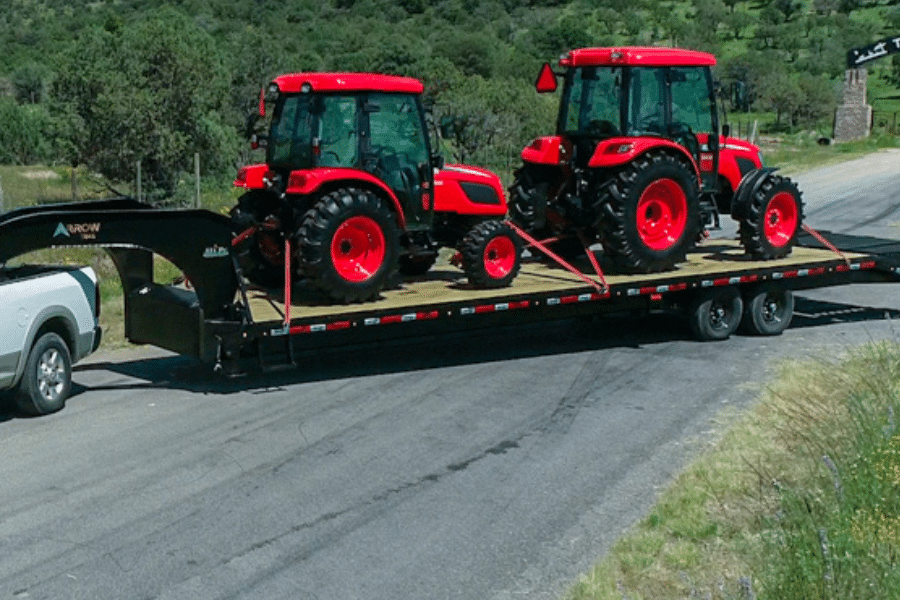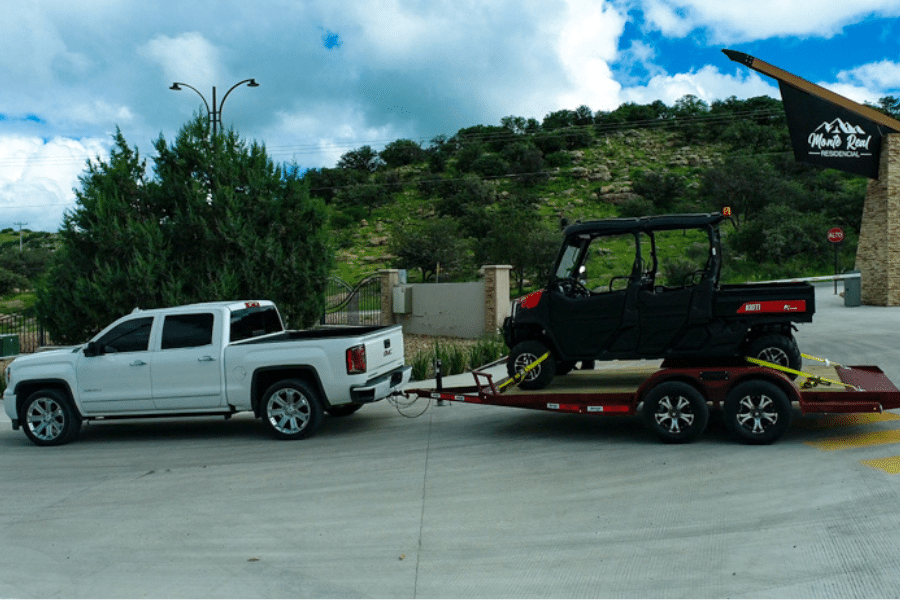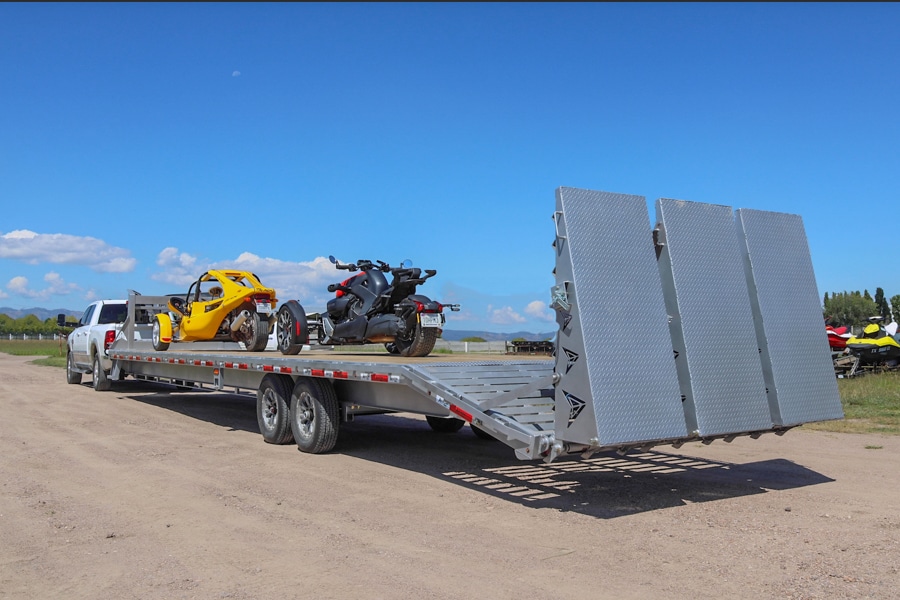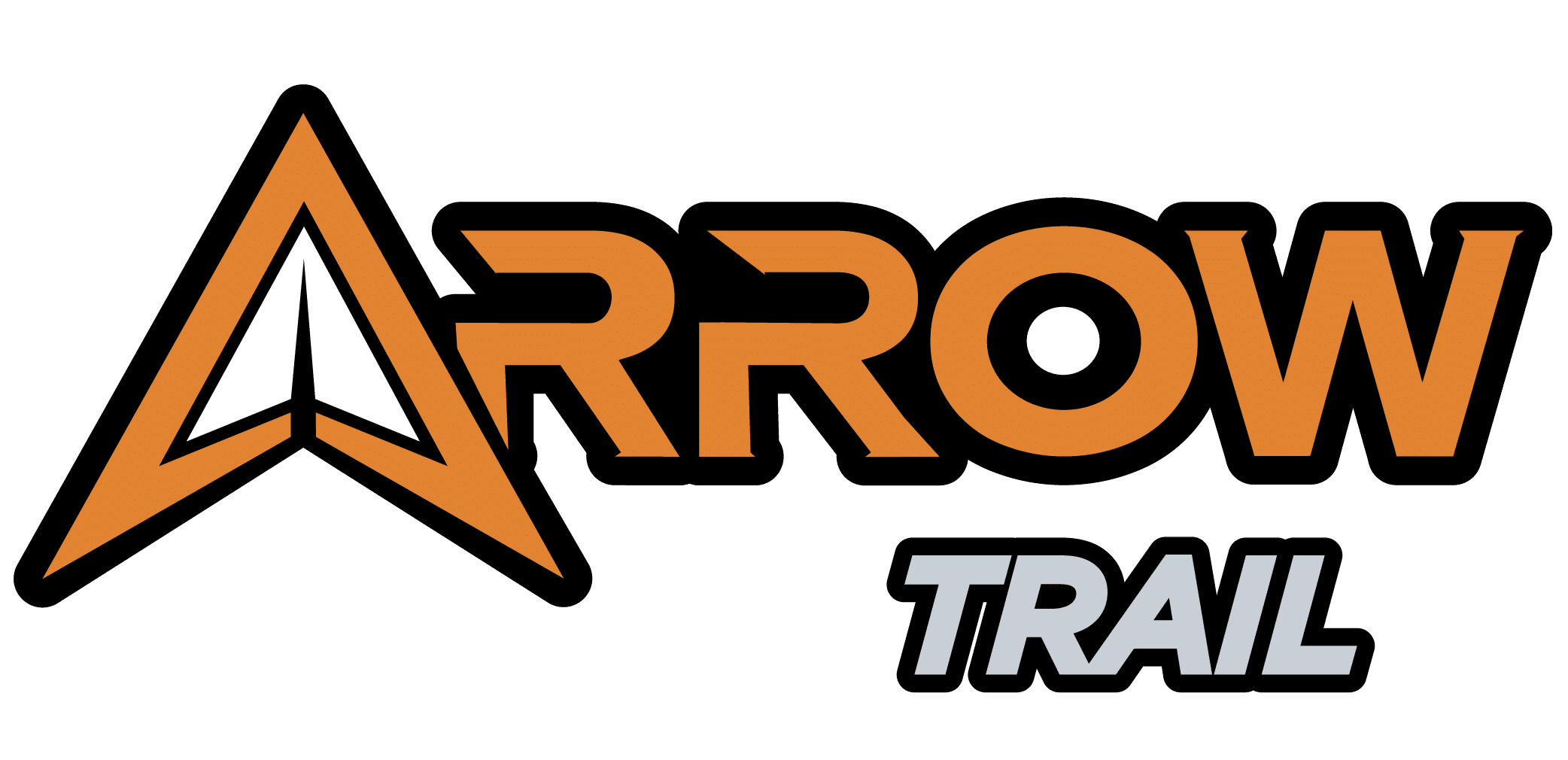The Complete Guide to Alabama Trailer Laws

In Alabama, any towed vehicle is legally classified as a trailer, but not all trailers follow the same rules. Utility trailers, boat trailers, campers, and commercial rigs each fall under different requirements for lights, plates, tags, brakes, and registration. This guide walks you through the trailer laws that apply in Alabama so you can haul legally and avoid costly fines.
What Are Alabama’s Trailer Laws?

Alabama’s trailer laws cover a wide range of features, including size, weight, safety requirements, registration, and more. These can vary depending on the type of trailer you plan to haul. Below, we’ll break things down by feature to give you a clear picture of what your trailer needs in order to be considered “road-ready.”
Maximum Size & Weight Limits
Trailers must meet specific size and weight limits to avoid fines or being classified as oversized. To ensure compliance, we recommend downloading one of our trailer spec sheets, which clearly outlines all required dimensions and ratings.
Length
- Trailer only: Maximum of 40 feet
- Trailer with towing vehicle: Maximum of 65 feet
Width
- Maximum of 102 inches on roads with 12-foot lanes
- Limited to 96 inches on roads with narrower lanes
Height
- Maximum of 13 feet 6 inches
Weight
The maximum weight allowed depends on the number of axles and how far apart they are spaced. Most non-commercial trailers fall within these limits:
- Single axle: Up to 20,000 lbs
- Tandem axle: Up to 34,000 lbs
- Gross vehicle weight (combined truck and trailer): Up to 80,000 lbs
Lighting & Visibility Requirements
Trailers, like passenger vehicles, must have working brake lights, reflectors, and other visibility features to signal their presence and movements to other drivers. While specific requirements can vary depending on trailer size, the following standards apply in most cases:
Lighting by Trailer Position:
- Front: 2 clearance lamps (one on each side)
- Each Side:
- 2 side marker lamps (one near the front and one near the rear)
- 2 side reflectors (one near the front and one near the rear)
- Rear:
- 2 clearance lamps (on each side)
- 2 red reflectors (one on each side)
- 1 stop light
- Red in color
- Must be clearly visible from 500 feet
- Mounted at a height between 20 and 60 inches
License Plate Lighting
- A separate white lamo or integrated illuminator
- Must make the plate readable from 50 feet when the lights are on
Additional Requirements for Trailers Over 80 Inches Wide
- Clearance lamps at all four corners (front and rear)
- Side marker lamps near the front and rear on both sides
- Reflectors placed at both the front and rear on both sides
Brake System Requirements
Your trailer’s lighting must clearly indicate when you’re braking, but that’s only part of the safety requirements. Alabama law also outlines specific brake system standards to make sure you’re hauling safely and legally. Here’s what you need to know:
Trailers with a Gross Weight Over 3,000 Pounds
- Must have brakes on all wheels
- Brakes must activate automatically if the trailer detaches from the towing vehicle
- Brakes must engage immediately and remain engaged for at least 15 minutes
Unified Brake Control
- All service brakes must be activated by a single control device
- A separate control for the trailer is allowed, but the main control must still operate all brakes simultaneously
Hitch, Safety Chains, and Coupling Devices
The hitch, safety chains, and coupler work together to keep the trailer securely connected to the towing vehicle. Alabama law includes specific requirements for these components to help prevent detachment and ensure safety on the road. Even if some of these seem like common sense, it’s important to understand each one to tow safely and legally.
- Safety chains are required on all trailers
- The hitch must be rated for the combined weight of the trailer and its load
- The hitch must be securely mounted to the towing vehicle
- Safety chains must be crossed under the coupler and securely attached to the tow vehicle
Alabama Trailer Registration Requirements
All trailers in Alabama must be registered. However, the specific requirements vary depending on the type of trailer you plan to tow. Below is a breakdown of what’s required for titles, registration, and license plates.
Trailer Titles
- No Alabama Certificate of Title Is Required For:
- Utility trailers
- Boat trailers
- Bumper pull trailers
- A trailer more than 20 years old
- A title is required for:
- Travel trailers
- Folding & collapsible camping trailers
- Horse trailers with living quarters
- Goosenecks
- 18 wheelers
- 5th wheels (campers)
- Log trailers
- Dump truck trailers
Trailer Registration
- Required documents:
- Completed bill of sale
- Title (if your trailer requires one)
- Insurance not required
- Registration Fees:
- Privately owned utility trailer or travel trailer, which is not operated for hire, lease, or rental: $12
- Utility trailer, rented or leased for compensation: $15
- Truck, tractor trailer or semitrailer: $20
Trailer License Plates
- Proper license plate can be obtained from the Alabama Department of Revenue or from your vehicle licensing office
- Permanent trailer plates are available for qualifying truck trailers, semitrailers, and goosenecks (not utility trailers)
Do Trailers Need Insurance in Alabama?
Trailers are typically covered under the same insurance policy as your towing vehicle. However, if your trailer isn’t automatically included, make sure to secure separate coverage to protect against accidents and other unexpected incidents.
What Are the Rules for Utility Trailers in Alabama?
In Alabama, a utility trailer is defined as a non-motorized vehicle designed to be towed by a passenger car or pickup truck. These trailers often have different requirements than larger or commercial trailer types. Key distinctions include:
- No title is required if the trailer is used for personal (non-commercial) purposes
- Utility trailer tags are mandatory
- Registration fees are lower than those for commercial or heavier trailer types
Driver, Towing, & Inspection Laws
In addition to trailer requirements, it’s important to make sure you have the proper license and meet any inspection rules before towing on Alabama roads.
Do You Need a Special Driver’s License For a Trailer in Alabama?
You could need a commercial driver’s license (CDL), but it depends on the gross vehicle weight rating (GVWR) of the trailer and towing vehicle. Here’s what type of CDL is required based on the GVWR of you trailer and towing vehicle:
| Class A | -Combined GVWR (truck + trailer) is over 26,001 lbs -Trailer GVWR is over 10,000 lbs |
| Class B | -Towing vehicle GVWR is 26,001 lbs or more -Trailer GVWR is 10,000 lbs or less |
| Class C | – Does not meet Class A or B weight thresholds, but: Designed to transport 16+ passengers, including the driver or used to transport hazardous materials requiring placards |
Do You Have to Have Your Trailer Inspected?
In Alabama, trailers are not required to undergo annual inspections like passenger vehicles or trailers in some other states. However, if you’re titling a trailer for the first time, the VIN must be inspected as part of the process. Even though ongoing inspections aren’t required, it’s still important to regularly check your trailer’s condition to ensure it meets legal requirements and operates safely.
What Are the Penalities for Non-Compliance?
If your trailer fails to meet any of the requirements outlined above, you may be subject to the following penalties:
- Fines
- Late Fee Payments
- Potential misdemeanor charges & imprisonment
To avoid these penalties, it’s recommended that you ensure your trailer is in compliance with all the requirements outlined above. You can certify compliance with the Alabama Department of Transportation.
Find A Trailer That Meets Alabama’s Legal Standards

Now that you understand the requirements trailers must meet in Alabama, it’s time to start browsing for one that fits your needs and complies with state standards. To make your search easier, we’ll highlight the key features of a compliant trailer and share some options that check all the right boxes.
What To Look For in a Compliant Trailer
In Alabama, a road-ready trailer should meet the following requirements:
- No longer than 40 feet
- Width between 96 and 102 inches, depending on road type
- No taller than 13 feet 6 inches
- Proper lighting and reflectors on the sides, front, and rear
- A rear license plate that is illuminated and visible from at least 50 feet
- A hitch and coupler system rated for the weight of your trailer and towing vehicle
- Safety chains that are crossed and securely attached
- Axles and tires that support the trailer’s total weight (GVWR)
- Valid registration and title, if required for your trailer type
- Compliance with any additional requirements outlined above
If you need help selecting the right trailer, check out our guide on choosing a trailer based on what you plan to haul—it breaks down the best options for different use cases.
Browse Legal Trailer Options
All of the trailers below meet Alabama’s requirements and are built for a wide range of uses, so you can find exactly what you need with confidence.
Get Expert Help Before You Buy
Need expert guidance on choosing the right trailer? If you’d like help determining which trailer best fits your needs or understanding what legal requirements apply, contact our Alabama-based dealer, Oak Ridge Trailer Sales. Their team understands local regulations and can walk you through their available inventory to help you find a trailer that is both compliant and practical.
As an authorized supplier of Arrow Trail products, which are all built with legal compliance in mind, they are sure to have a trailer that meets your specific needs.
Want to take a closer look? Download a spec sheet for detailed information on height, width, length, axle configuration, lighting, brake systems, and more. Or stop by Oak Ridge Trailer Sales to explore your options in person and drive home with a trailer that checks every box.






